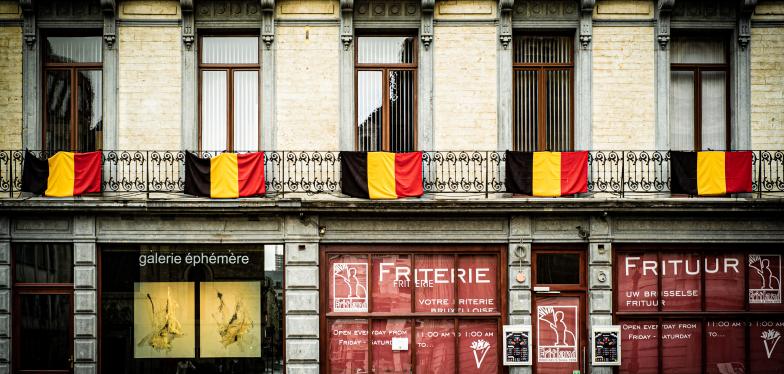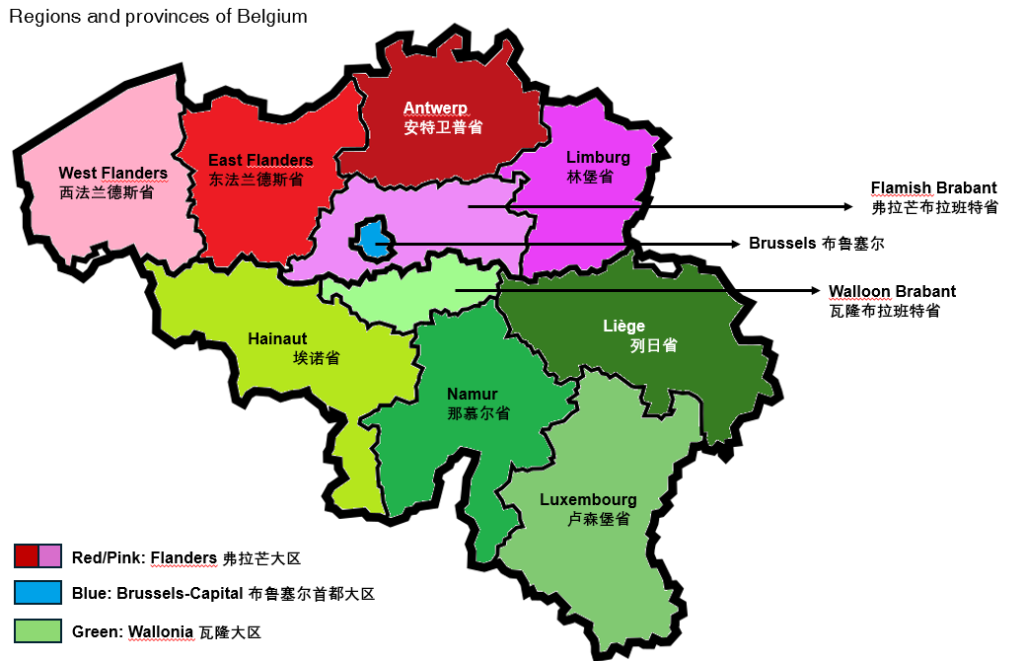Belgium, in the heart of Europe, has a diverse and dynamic workforce, defined by several unique characteristics that contribute to its economic strength and resilience. As a nation with a rich history, a multilingual population, and a strategic location, Belgium’s workforce embodies qualities that make it an interesting location for doing business with China.

Language skills
One of the defining features of the Belgian workforce is its linguistic diversity. The country is divided into three main linguistic regions: Dutch-speaking Flanders in the north, French-speaking Wallonia in the south, and the bilingual Brussels-Capital region. In the east of Belgium there is also a small German-speaking region. Consequently, a considerable number of Belgians are fluent in multiple languages, often speaking Dutch, French and English, and sometimes also German. This linguistic versatility enhances communication skills and fosters a collaborative work environment, making Belgium an attractive place to do business.

Beyond the overarching characteristics of the Belgian workforce, there are notable distinctions in the work culture and business environment when comparing the regions of Brussels, Flanders, and Wallonia.
Brussels, as the capital of the European Union, hosts numerous international organizations and institutions, which creates a unique cosmopolitan work atmosphere. Professionals in Brussels often experience a fast-paced environment with a high degree of multiculturalism. English is widely spoken, adding an additional layer of linguistic diversity to the workplace.
In Flanders, the Dutch-speaking northern region, a strong emphasis is placed on innovation and technology. Flanders is known for its thriving industrial and technology sectors. The work culture is often characterized by a pragmatic and results-driven approach, aligning with the region’s economic prosperity. Flemish businesses tend to have a more direct communication style, fostering a transparent and efficient working environment.
Conversely, Wallonia, the French-speaking southern region, has a strong industrial tradition with a focus on sectors like metallurgy and engineering. The work culture in Wallonia is often seen as more relaxed compared to Flanders, with an emphasis on relationship-building and collaboration. French is the primary language in this region, and a slightly more hierarchical structure may be observed in organizations.
Family and the importance of work-life balance
The family is the foundation of Belgium’s social structure. The home is reserved for family and close friends only. Belgians consider their family as their most important value and often let their decisions about work be defined by where they live, when they need to pick up their children from school, etc. As a result, Belgium has one of the world’s highest loyalty rates in business.

Work-life balance is a key characteristic of the Belgian workforce. Consequently, disturbing a colleague after working hours or during the weekend or holiday is not appreciated. Furthermore, it can be hard to organize meetings in July or August, as many people are on vacation during these months (2 to 3 weeks in a row). The same applies for the Easter period, and the time between Christmas and New Year.
Privacy and modesty
Belgians insist on their privacy and prefer to separate private life and business. They are rather discrete about their finances, religious or political preferences, but they can be quite open to talk about family or personal interests. They also tend to be reserved and conservative, showing a ‘wait-and-see’ attitude, especially towards people they don’t know.
Belgians are not good in returning phone calls or answering e-mails. This may sometimes come across as impoliteness to non-Belgians. Usually, just giving it some time to get to know each other may be sufficient. And once you have broken the ice, Belgians are extremely faithful and could become your business partner or even your best friend. This is also possible between colleagues at the workplace, often leading to quite informal relationships between colleagues, even between superiors and their subordinates. Belgians are modest, sometimes show a tendency to hold back on new ideas, and they don’t like change. It might take some persuasive argumentation to have a change or a revised approach accepted.
Inclusivity
Belgians are accustomed to working with people from different cultures and backgrounds, fostering an open-minded and cosmopolitan approach to business. The country’s commitment to equal opportunities is reflected in the workplace, where individuals from various cultural backgrounds and genders work together seamlessly. Belgium actively promotes gender equality, and the percentage of women in the workforce is steadily increasing across different sectors.
Highly skilled workforce
Belgium has a well-established education system that produces highly qualified professionals. Technical expertise, combined with a strong emphasis on soft skills, contributes to the adaptability and versatility of the Belgian workforce. Lifelong learning is encouraged, ensuring that employees stay abreast of industry developments and technological advancements.

To conclude, despite the differences between the three Belgian regions, there are many common values and characteristics which unite all Belgians.
Please contact the Belgian-Chinese Chamber of Commerce (BCECC) in case you need more information.
